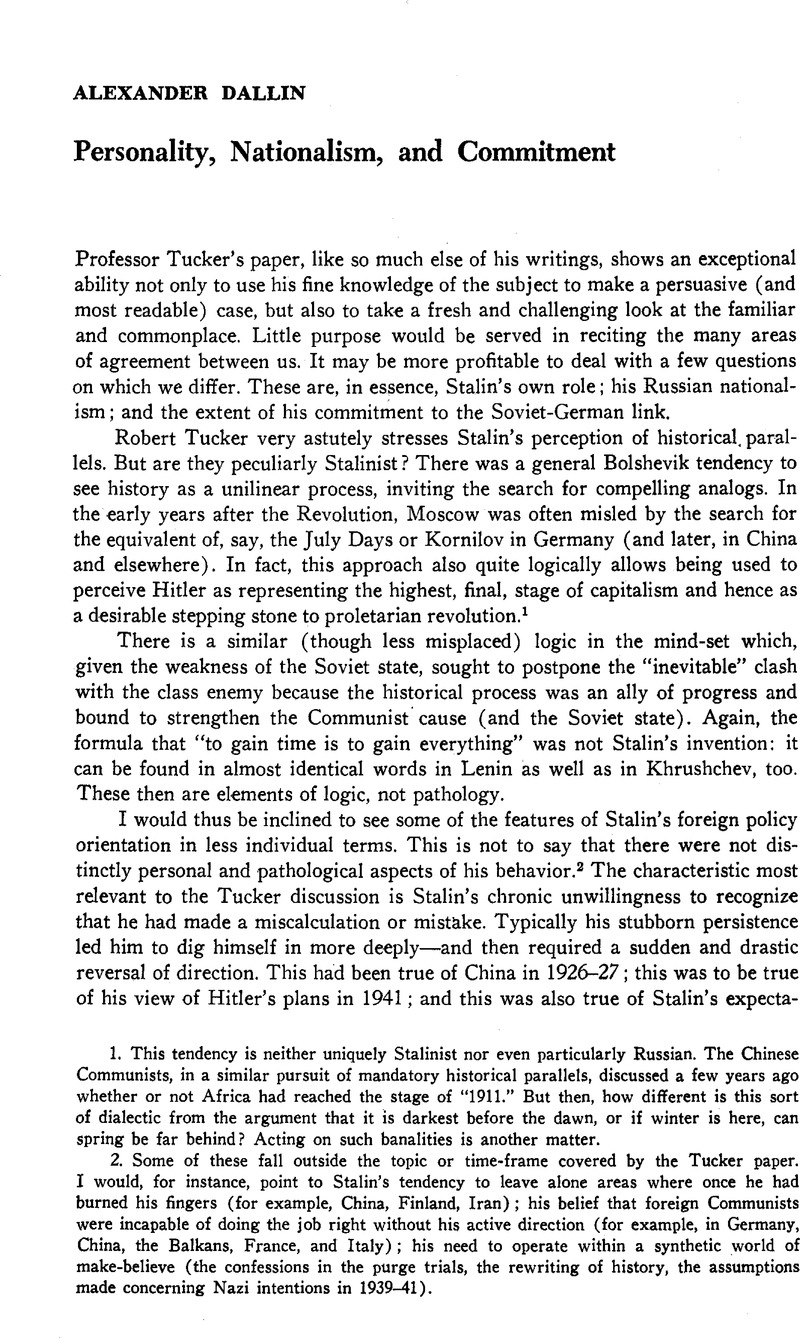No CrossRef data available.
Article contents
Personality, Nationalism, and Commitment
Published online by Cambridge University Press: 27 January 2017
Abstract

- Type
- Discussion
- Information
- Copyright
- Copyright © Association for Slavic, East European, and Eurasian Studies. 1977
References
1. This tendency is neither uniquely Stalinist nor even particularly Russian. The Chinese Communists, in a similar pursuit of mandatory historical parallels, discussed a few years ago whether or not Africa had reached the stage of “1911.” But then, how different is this sort of dialectic from the argument that it is darkest before the dawn, or if winter is here, can spring be far behind? Acting on such banalities is another matter.
2. Some of these fall outside the topic or time-frame covered by the Tucker paper. I would, for instance, point to Stalin's tendency to leave alone areas where once he had burned his fingers (for example, China, Finland, Iran); his belief that foreign Communists were incapable of doing the job right without his active direction (for example, in Germany, China, the Balkans, France, and Italy); his need to operate within a synthetic world of make-believe (the confessions in the purge trials, the rewriting of history, the assumptions made concerning Nazi intentions in 1939-41).
3. It might also be argued that “nationalism” is a misnomer here, but there is little point in quibbling. The gradual internalization—in essence, means becoming ends (Tucker has elsewhere applied Anthony Wallace's proposition of the shift from goal culture to transfer culture)—also includes the gradual identification of the success of communism with the Soviet state (and communism's failure elsewhere); as well as the analogous shift from grassroots revolution to the imposition of “revolutionary” change from above.
4. Professor Tucker very aptly implies that this was not a systemic problem. A Trotsky could see nazism for what it was worth; and a Litvinov could later disagree with Stalin's and Zhdanov's assumption of inevitable war between the new superpowers.




